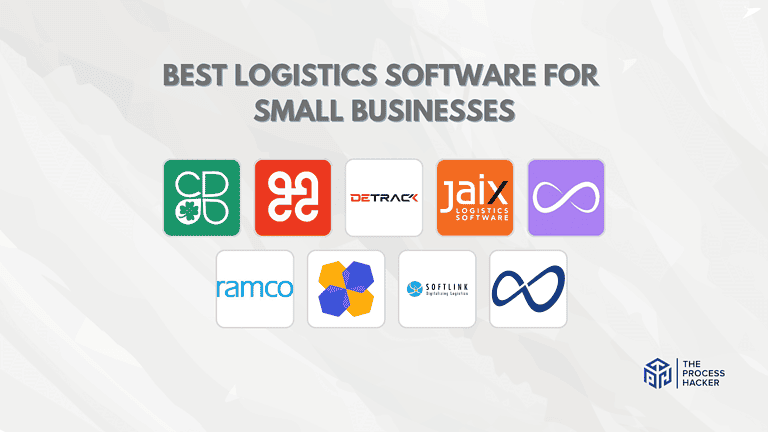What is a Business Strategy Consultant? Why Hire One?
Have you ever felt stuck in your business, wondering how to move forward and achieve your goals? Or you’re a new entrepreneur looking to develop a solid foundation for your business to thrive.
In either case, a business strategy consultant could be the key to unlocking your potential and guiding you toward success. But what exactly is a business strategy consultant, and why should you consider hiring one?
In this blog post, we’ll explore the role of a business strategy consultant, the benefits they can bring to your business, and how they can help you easily navigate the complexities of the business world.
Whether you’re a seasoned business owner looking to take your company to the next level or a budding entrepreneur seeking guidance, a business strategy consultant could be just what you need to turn your business dreams into reality.
What Is A Business Strategy Consultant?
A Business Strategy Consultant focuses on your company’s overall strategic direction rather than the technical details. They analyze market trends, competitive landscapes, and internal operations to recommend strategies that foster long-term growth and sustainability.
Part of the strategy consultant job description is providing insights that can fundamentally transform a business’s trajectory, whether entering new markets, providing budgeting advice, or refining a product line.
What Business Consulting Services Do They Provide?
A Business Technology Consultant assesses your current technology setup and identifies opportunities for improvement. Whether your business needs a more robust data security system, a new software solution to enhance employee productivity, or custom app development to better serve your customers, they have the expertise to recommend and implement the right solutions.
They also stay updated on the latest technological advances and industry standards, enabling them to ensure that the technology you use is current, scalable, and secure. Their involvement doesn’t end with recommendations; they often oversee the deployment of new technologies and help your team adapt to these changes efficiently.
What Are The Benefits of Hiring A Business Strategy Consultant?
When considering hiring a Business Strategy Consultant, you’re looking at bringing on a visionary who can pinpoint and orchestrate effective strategies that propel your business forward. Here’s how they can benefit your organization:
- Strategic Planning: They provide valuable insights that aid in long-term planning and decision-making, ensuring your strategies are robust and future-proof.
- Market Research and Business Analysis: With their deep understanding of market dynamics, they can identify growth opportunities and competitive threats, positioning you to capitalize on market trends effectively.
- Operational Improvement: They analyze your business operations to identify bottlenecks and inefficiencies and recommend strategic improvements that enhance productivity.
- Risk Management: By foreseeing potential risks in your business landscape, they help you devise strategies to mitigate them before they become problematic.
- Change Management: Implementing change can be challenging, and a Business Strategy Consultant can guide you through the process smoothly, ensuring minimal disruption while maximizing the benefits of change.
Whether you aim to refine your business model, explore new markets, or get a fresh perspective on your strategic direction, a Business Strategy Consultant can provide the expertise you need to make it happen. They don’t just advise—they partner with you to ensure your business survives and thrives in today’s competitive environment.
How to Find The Right Business Strategy Consultant?
Finding the right Business Strategy Consultant matches their expertise with your strategic needs. Here are some steps you can take:
#1) Define Your Objectives
The first step in finding the right consultant is clearly articulating your goal. Here’s how you can effectively define your objectives:
- Identify Key Challenges: Pinpoint the specific challenges you want the consultant to address in your business. Is it a decline in market share, inefficiencies in operations, or a need for a new market strategy?
- Set Clear Goals: What exactly do you want to accomplish with the help of a consultant? Whether it’s growth, cost reduction, or product diversification, having clear, measurable goals will help you communicate your needs and expectations.
- Prioritize Your Needs: Determine what’s most critical to your business’s success. This prioritization from a strategy consultant works by narrowing down business strategy consultants specializing in the areas that most matter to you.
- Consider Long-Term Objectives: Think beyond immediate problems. Where do you see your business in the next five to ten years? A consultant who understands your long-term vision can provide strategies that are effective now and scalable for the future.
- Prepare to Communicate: Be ready to discuss these objectives in depth with potential consultants. The more clearly you can articulate your needs, the better a consultant can tailor their services to your business.
By clearly defining your objectives, you create a foundation for selecting a consultant who can offer targeted, practical advice tailored to your business’s needs. This step is crucial for ensuring that the strategy consulting engagement will drive the desired outcomes and truly benefit your company.
#2) Look for Relevant Experience
When searching for a Business Strategy Consultant, here are specific types of experience you should look for:
- Industry Expertise: Choose a strategic consultant who deeply understands your industry. They may have a Bachelor’s Degree or doctorate or have experience as experienced senior managers. This industry knowledge is crucial as it enables the consultant to provide relevant and practical strategies that work within your specific market behavior.
- Strategic Successes: Look for a strategic consultant with a track record of successful strategic initiatives. Ask for specific examples where they have driven growth, transformed operations, or significantly improved a company’s competitive position.
- Cross-Functional Experience: Consultants with experience in various functions (like marketing, operations, finance, and human resources) can provide comprehensive strategies that consider all aspects of your business.
- Global Perspective: If you’re looking to expand internationally or compete in global markets, a consultant with international experience would be invaluable. They can offer insights into global trends and help you navigate cross-border challenges.
- Technological Fluency: In today’s digital transformation, a consultant who understands how technology can be leveraged to enhance business strategies could offer you a significant advantage.
- Problem-Solving Skills: Ensure the consultant has proven problem-solving skills, can handle complex challenges, and provides practical solutions.
- Change Business Management Experience: Implementing new strategies often requires organizational changes. A consultant with experience in change management can be crucial in ensuring these transitions are smooth and successful.
By ensuring that your Business Strategy Consultant has these specific experiences, you can feel confident that they will provide valuable guidance and support, helping to propel your business to new heights. Remember, the right consultant doesn’t just advise—they partner with you to achieve tangible, lasting success.
#3) Evaluate Their Approach
Each consultant has a unique approach. Schedule a consultation to understand how they work and ensure it meshes well with your company’s culture and needs.
Creating a rubric to evaluate a Business Strategy Consultant’s approach provides a structured and quantifiable method to assess their effectiveness and suitability for your organization. Below is a sample rubric outlining criteria for evaluating a consultant’s methodology. This rubric uses a scoring system from 1 (Poor) to 5 (Excellent) to simplify the evaluation process.
Sample Rubric for Evaluating a Business Strategy Consultant’s Approach
| Criteria | Description | 1 (Poor) | 3 (Average) | 5 (Excellent) |
|---|---|---|---|---|
| Strategic Alignment | Measures how well the consultant’s strategies align with your business goals. | No alignment | Some alignment | Perfect alignment |
| Adaptability | Assesses the ability to modify strategies based on changes in the business environment or feedback. | Resists change | Adapts occasionally | Highly adaptive |
| Communication Skills | Evaluates clarity and effectiveness in the communication of strategies and ideas. | Unclear, confusing | Generally clear | Very clear and engaging |
| Problem-Solving | Looks at the process for identifying and resolving business challenges. | Ineffective methods | Adequate methods | Highly effective methods |
| Implementation Support | Considers the level of support provided during the implementation of strategies. | Minimal support | Moderate support | Extensive support |
| Results Orientation | Focuses on the track record of achieving tangible results. | Rarely achieves results | Occasionally achieves results | Consistently achieves results |
| Innovation | Measures creativity in solving problems and crafting strategies. | Lacks creativity | Moderately creative | Highly innovative |
| Feedback Integration | Assesses how the consultant uses client feedback to refine strategies. | Ignores feedback | Sometimes uses feedback | Actively integrates feedback |
| Cultural Fit | Evaluate compatibility with your organization’s culture. | Poor fit | Acceptable fit | Excellent fit |
How to Use the Rubric:
- Define the Scope: Before you begin the evaluation, clearly define what aspects of the consultant’s approach are most important to your organization. This will help focus the assessment on critical areas of your decision-making process.
- Gather Input: Involve various stakeholders in interacting with the consultant in the evaluation process. This can include members from different departments with insights into different aspects of the consultant’s approach.
- Assign Scores: Assign a score based on the consultant’s performance for each criterion. Justify each score with specific examples from your interaction with the consultant.
- Calculate the Total Score: Add the scores for each criterion to get a total score. This total will help you compare different consultants objectively.
- Make a Decision: Use your team’s total scores and qualitative feedback to decide which consultant best fits your organization.
This rubric provides a clear and measurable way to assess potential consultants and ensures that the decision-making process is transparent and justifiable.
#4) Check References and Reviews
Speak to former clients to gauge the consultant’s effectiveness and professionalism. Online reviews and testimonials can also provide insights into their capabilities and reliability.
#5) Ensure a Cultural Fit
The best strategies emerge from a solid collaborative relationship. Ensure the consultant’s style and company culture fit well with yours to foster effective communication and teamwork.
By carefully selecting a Business Strategy Consultant who aligns with your business vision and challenges, you can significantly enhance your strategic planning and execution, leading to sustained business administration growth and competitiveness.
Final Thoughts on Business Strategy Consultant

Hiring a Business Strategy Consultant takes a lot of careful consideration. They can bring fresh insights and catalyze significant organizational changes, often enhancing competitiveness and growth.
They offer an objective perspective that can challenge existing paradigms and stimulate innovative thinking. When selecting consultants or consulting firms, prioritize alignment with your strategic goals and cultural fit to ensure their strategic recommendations are practical and actionable.
Remember, the right consultant is an advisor and a long-term partner in your business’s journey!






